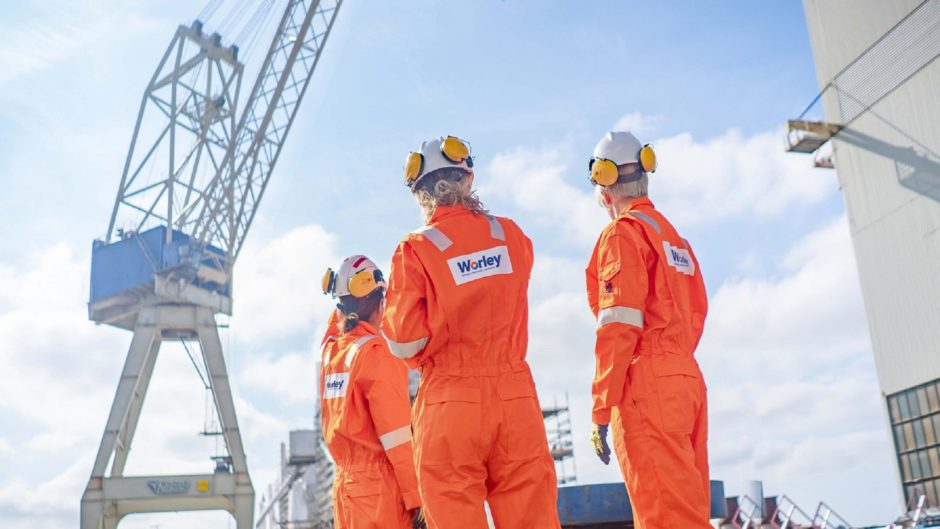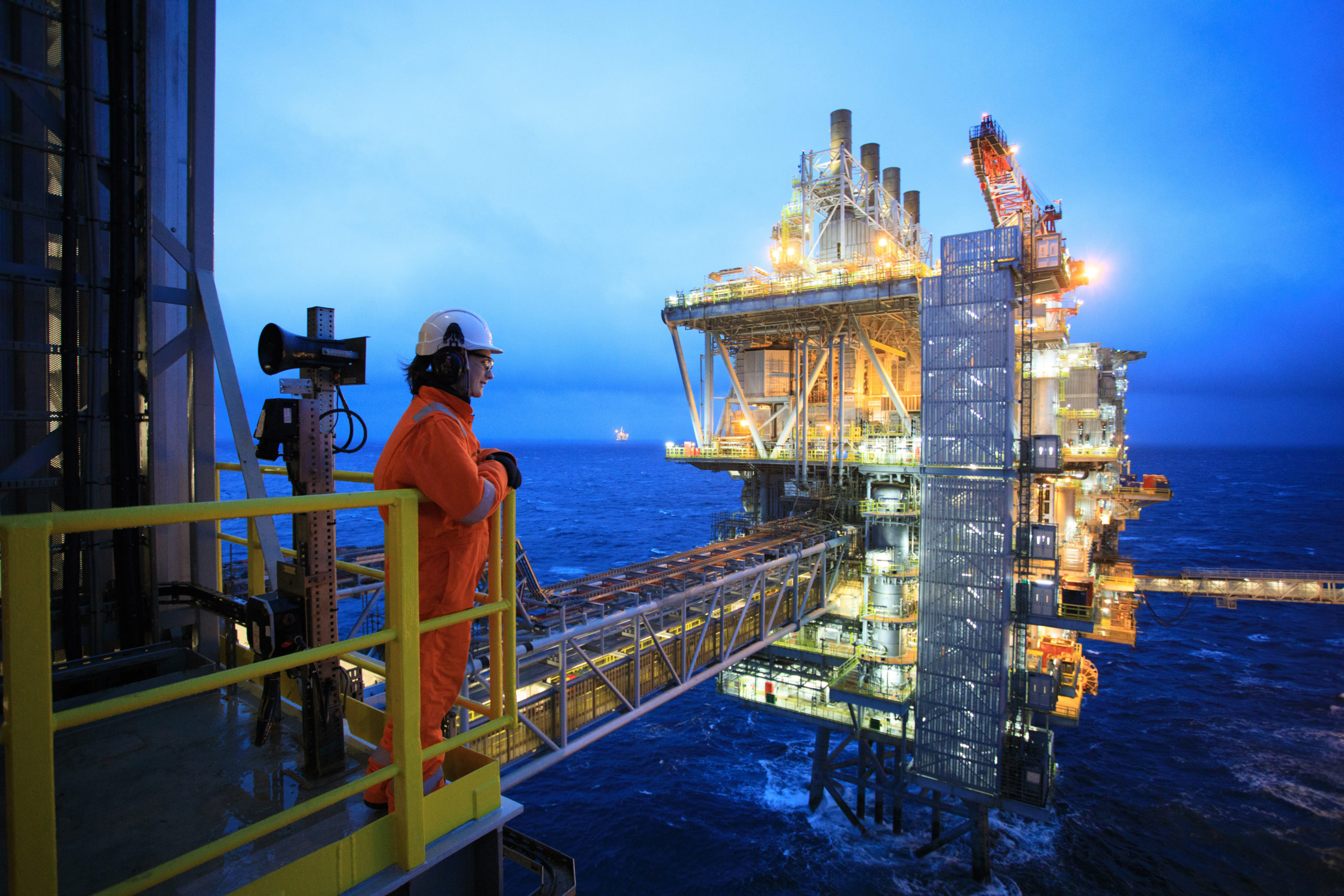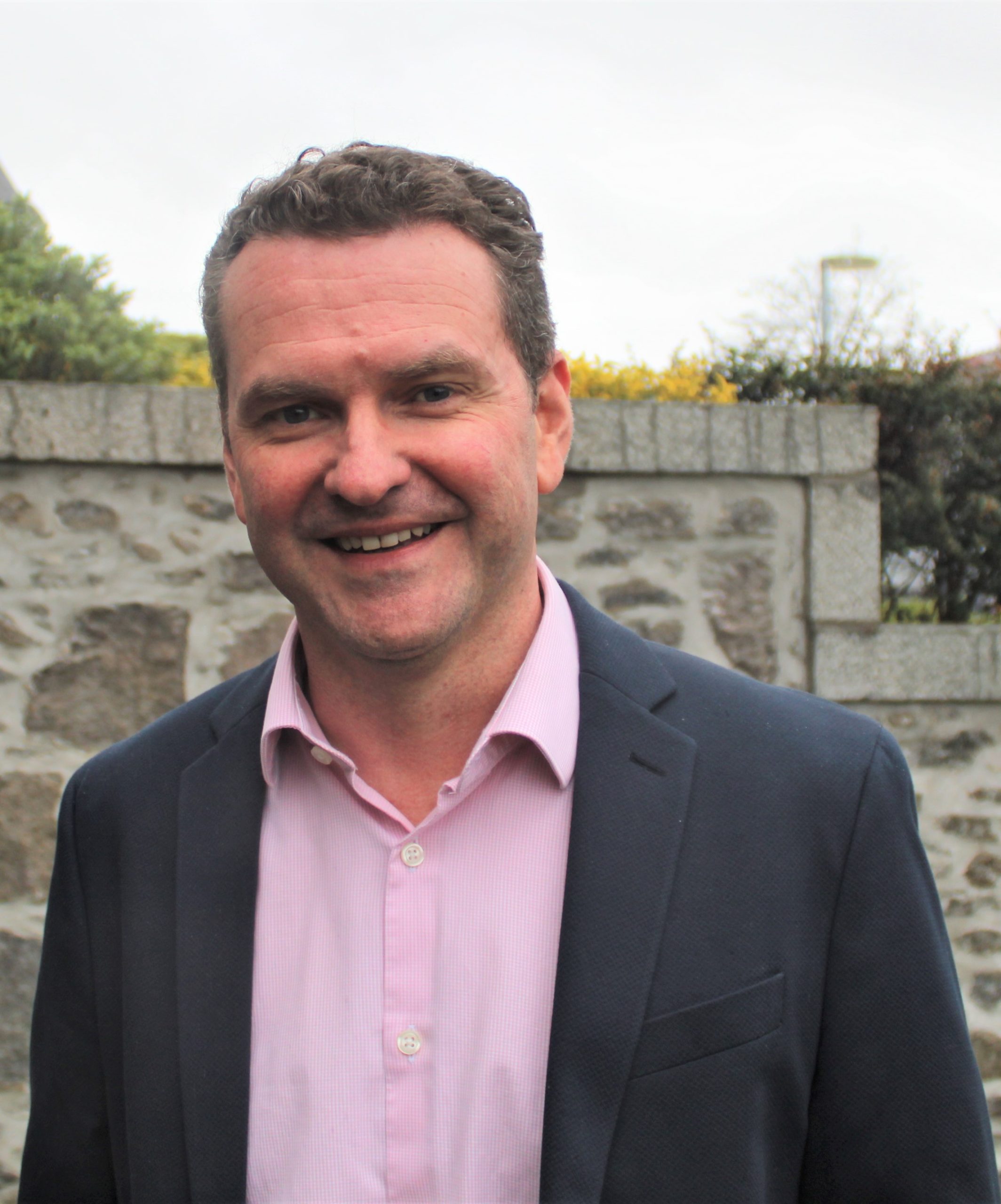
Helping to position Aberdeen “beyond the energy transition”, as Daniel McAteer puts it, is one of the goals of the new Worley boss in town.
McAteer, based in the city and recently promoted to vice president of energy, expects oil and gas to remain the focus for the division in the short to mid-term.
However, with Worley turning over a “new chapter” following Covid, including a change up to the energy division and McAteer’s appointment, he set out some goals for the engineering giant going forward.
“Being able to bring that local sustainability and growth back to Aberdeen is really key to what we do and I think the energy transition gives us the platform to do that”, he said.
“Our goal is to really position the Aberdeen business to drive beyond the energy transition and to be a key energy partner of choice for the UKCS and deliver a sustainable future both locally and globally.”
Signs are showing that could be the case. When it comes to work on remote operations, reducing manning levels to cut emissions, and other areas such as platform electrification, his answer is the same: it’s already happening.
“I think as the industry is being moved towards net zero and Roadmap 2035, this will see the business move to more ‘de-complexing’ of existing assets, which we’re starting to see now, to be honest.
“We’re already looking at how we introduce remote automation into existing platforms now, to then drive the ‘de-complexing’ and drive the decarbonisation of those assets.
“The introduction of electrification of assets, again, we’re already starting to see that come into the market.
“And the new assets we’re looking to be involved in designing, they’ll all be working towards a net-zero operation. So any greenfield projects – and we’re looking at a couple at the moment – they would be designed with net zero at the heart of them.”
Like its rivals, Australia-headquartered Worley has made thousands of job cuts globally since the start of Covid-19 and did not disclose, when asked, the number of redundancies in the Aberdeen area or wider UK.
“We’re all working a lot harder, is probably the best way to put it”, McAteer said, putting forward credentials of being a more “streamlined” and “agile” organisation to deliver projects.
Worley is also looking at new opportunities from the restructuring, such as working with the Engineering Construction Industry Training Boar on digital apprenticeships and “cross-skilling” of workers.

McAteer pointed to a report from Robert Gordon University and Opito in 2019, which estimated the industry would need to attract 4,500 workers in brand new roles, such as automation and data science, by 2025.
“We know, as an industry, there’s a load of new talent needed in the basin, and right now we don’t know what some of those roles are,” he said.
“We’re starting to see that’s going to be about how we support the digital business, the electrification business.
“So what this has actually done is create a lot of opportunities for a sustainable future for the generations to come.
“It has allowed that opportunity to come in, as well as looking at the likes of reskilling, multi-skilling of personnel as to how you work across traditional oil and gas assets into new energy assets.”
Key to the energy transition efforts for Worley is the digital aspect, McAteer said, particularly in its longer-term ambition of being the contractor with “the capability to remotely operate assets both onshore and offshore from a control centre in Aberdeen”.
Right person, right role, whatever location
One of the overlaps between the restructuring and life in a post-Covid world is the company’s approach of “right person, right role, regardless of their actual location”, which plays a part in the recent restructuring of the energy division.
The UK, Norway, Eastern Europe and Central Asia have been rolled together, with Aberdeen remaining “a strong project business”.
“We can add the value of being able to bring in specialist support and resources from around the world,” McAteer said.
“One thing lockdown has shown us is that it’s the right person for the right role, regardless of actual location. So if there’s an electrification expert sitting in Holland, for example, we can just pull them into the team.
“It allows me to bring that expertise from the wider Worley into Aberdeen to deliver suitable solutions to the Aberdeen market, and vice-versa.”
Worley is building up that bank of experience in the transition space, McAteer said as he whirled off some global stats: the firm is involved in more than 200 CCS projects, 200 electrification and energy efficiency projects, 70-plus hydrogen projects and in excess of 220 distributed energy and storage projects.
The focus for now in Aberdeen is traditional oil and gas projects, but the direction of travel is clear. Take platform electrification, for example.
“I would say it has definitely moved on from a position of something that’s getting talked about to a position of where we’re actually seeing opportunities and documentation coming to market,” McAteer said.
While Aberdeen was at the epicentre of the North Sea oil boom, the sector is now making efforts to transition into renewable and low-carbon forms of energy.
The North Sea Transition Deal has been announced, with Aberdeen expected be a big beneficiary of that. How and when that’s all going to come to pass remains a question as the majority of the cash will have to come from industry.
Meanwhile, those paying close attention will have noticed a flurry of announcements already this year for north-east England on wind manufacturing, hydrogen, CCS and low-carbon power stations.
Mr McAteer sees opportunity for the Aberdeen market to get involved.
“We’re actively engaged in several opportunities, including hydrogen and carbon capture projects planned for Teesside and the Humber,” he said.
“Worley’s process technology team plus our FEED EPC capability mean that we’ve been engaged early in a number of these projects. And then, in the longer-term, we’re engaged in bioenergy and CCS and waste to fuel projects in Humberside.
“Our Aberdeen team is already engaged in some of these opportunities. For example, Aberdeen has contributed to the UK supply chain evolution and also industrial relationship surveys. Worley Energy sees many transferrable competencies from our heritage Aberdeen skill base – the pipeline elements of both CCS and hydrogen networks, together with our offshore pipeline and storage requirements are real opportunities for Aberdeen to play an important role in these sectors.
“Through our presence across the UK, we’ve become an integral part of the country’s infrastructure and regional life. We’re supporting regions across the whole of the UK in the green recovery.
“This plays an important role in our wider energy division and, due to remote working capability of our organisation, we’re able to look at how the Aberdeen business can support such opportunities further.”
Recommended for you


 © Worley
© Worley